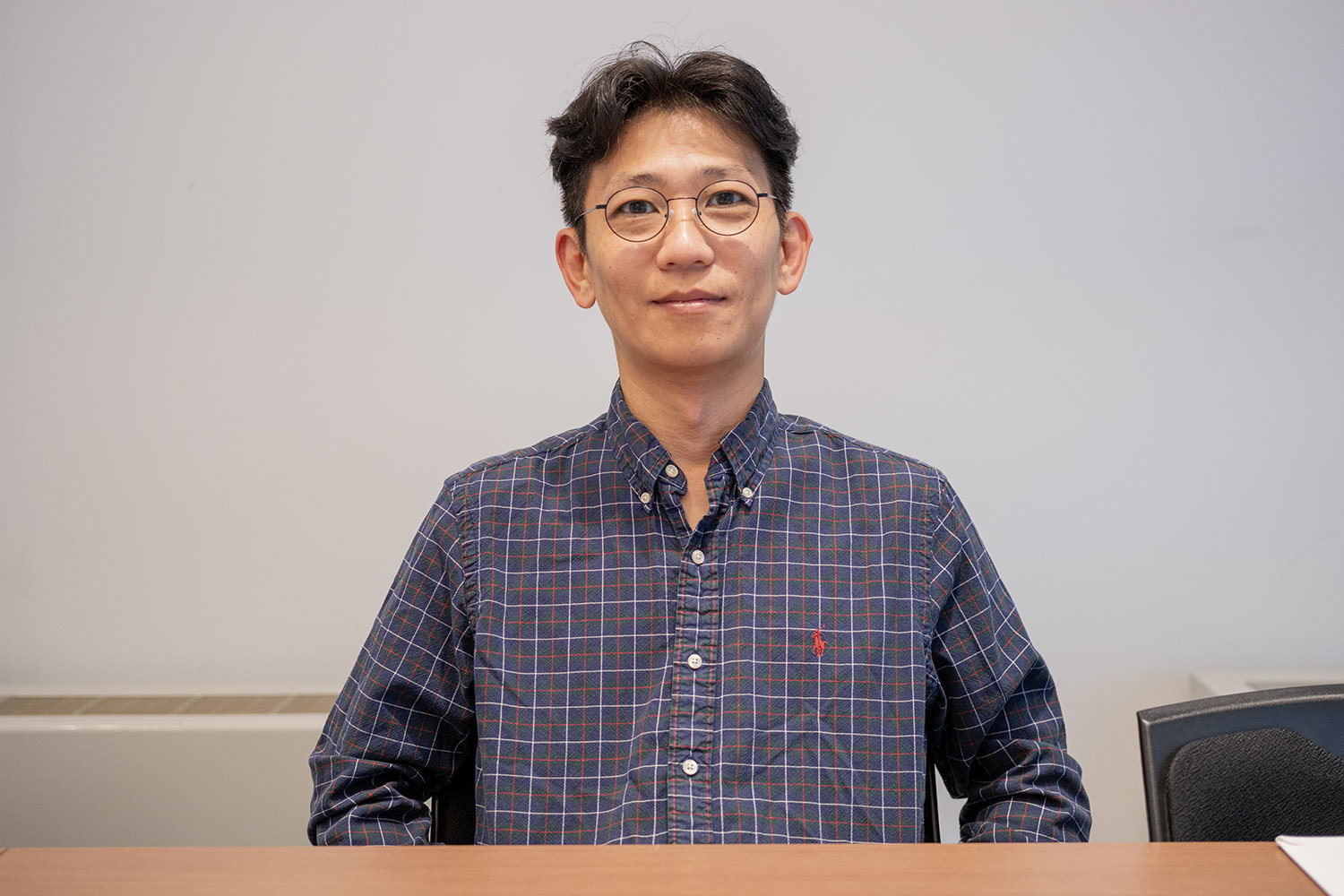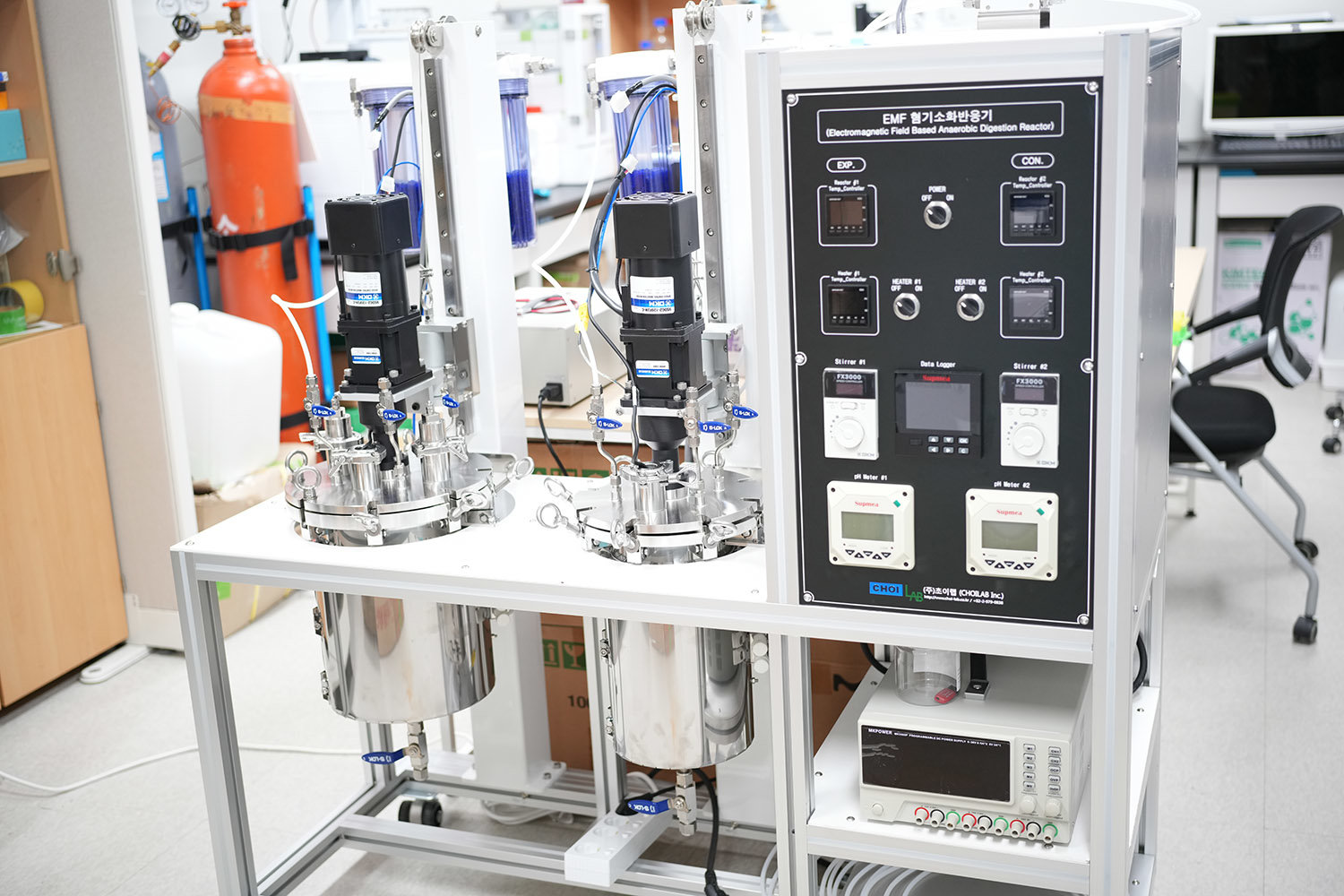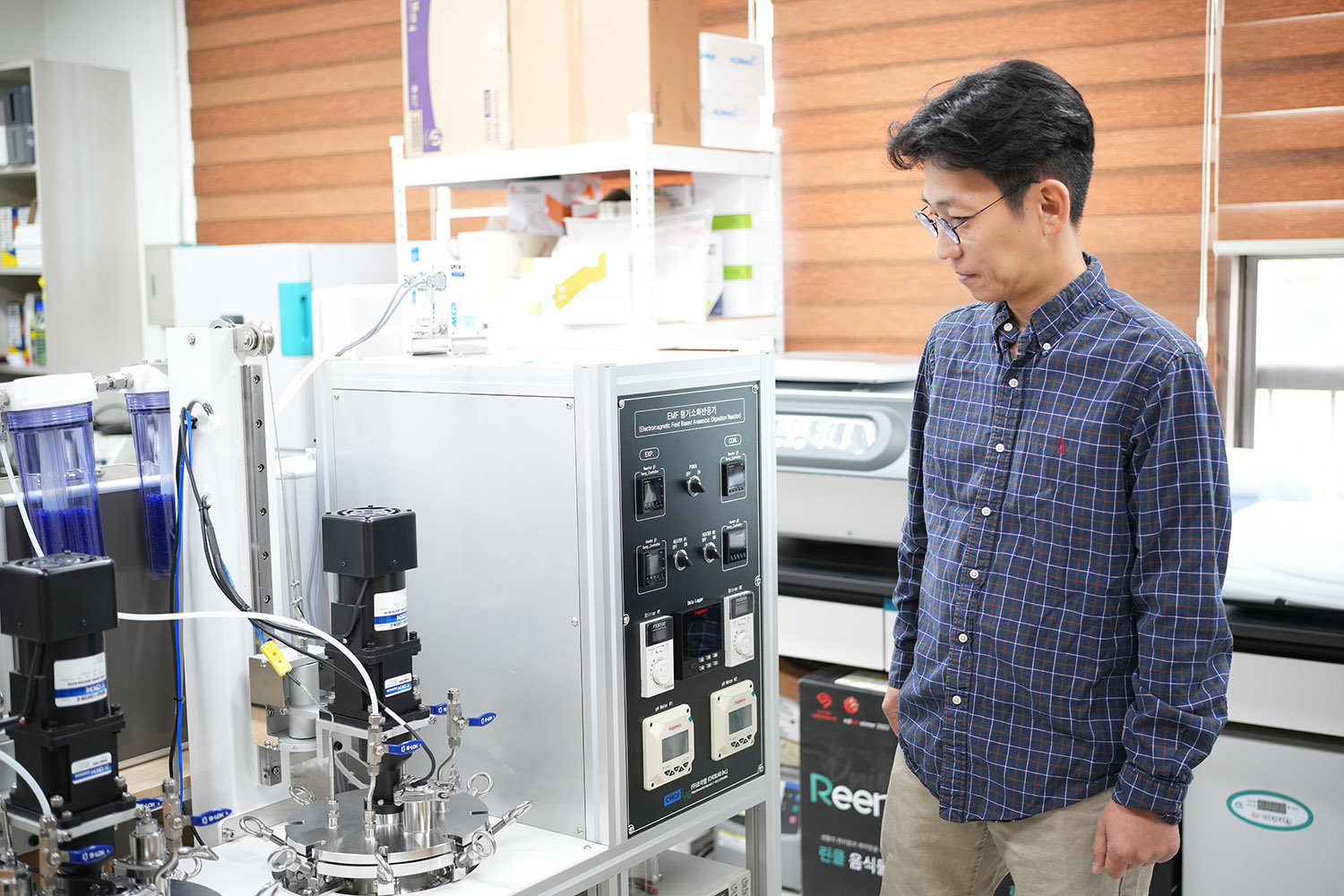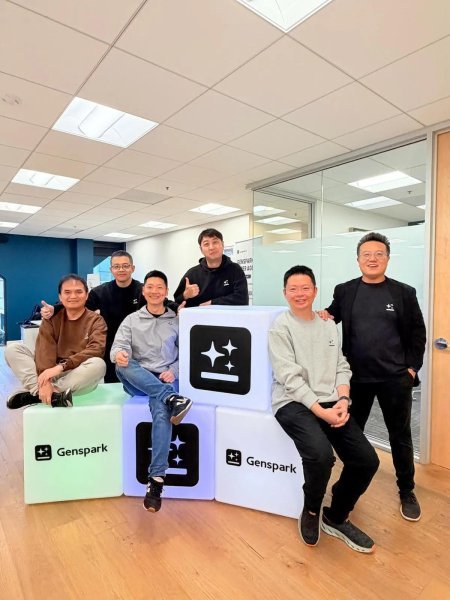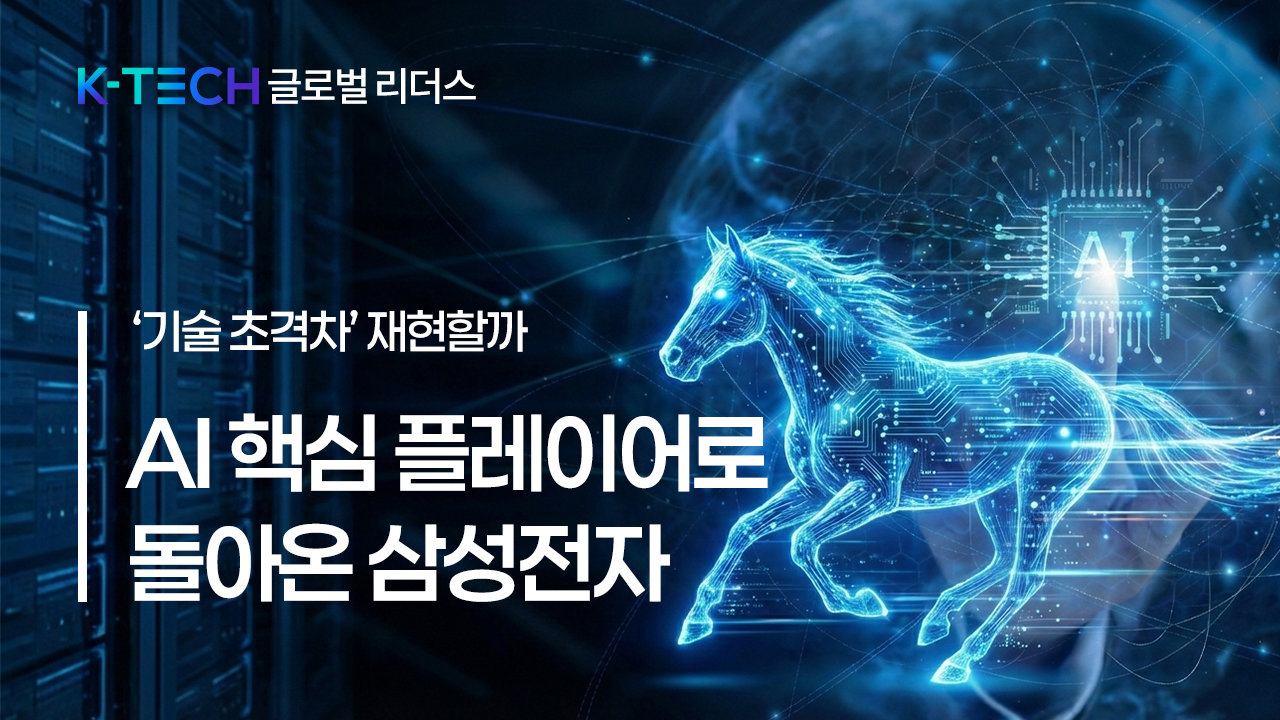
Biotech
Choi Lab: Biogas Tech Pioneers Energy Future
Dong-A Ilbo |
Updated 2025.10.17
※ The Seoul National University of Science and Technology's Startup Support Group assists promising startups with space, mentoring, networking, and commercialization support through its Business Incubation Center, aiding their growth. 'Startup in Science and Technology University' shares stories of startups aspiring to leap forward from the university's Business Incubation Center.
Globally, as climate change response and carbon neutrality become key issues, interest in renewable energy is rising. Among these, the development of biogas technology, which converts organic waste such as food waste, livestock manure, and sewage sludge into energy, is active. This is because it can solve waste problems and produce energy simultaneously.
The global biogas market is on a growth trajectory. According to data from market research firm Grand View Research, the biogas market, valued at USD 65.53 billion (approximately KRW 92.8953 trillion) in 2023, is expected to reach USD 87.86 billion (KRW 124.5503 trillion) by 2030.
Europe leads the biogas market, accounting for 41% of the total market as of 2023. It has systematically fostered the biogas industry through strong policies like the Renewable Energy Directive (RED II). Asian countries are also focusing on biogas as a solution to simultaneously address rapidly increasing energy demand and environmental issues.
The government has also prepared policies to achieve carbon neutrality. A representative example is the 'Act on the Promotion of Production and Utilization of Biogas Using Organic Waste Resources' implemented by the Ministry of Environment in December 2023. The law will apply to the public sector in 2025 and the private sector in 2026. The goal is for the public sector to produce biogas from 50% of organic waste resources and the private sector from 10% by 2034. The Ministry of Environment expects that environmentally friendly treatment of 5.57 million tons of organic waste will result in an annual fossil fuel replacement effect of KRW 230 billion and a reduction of 1 million tons of greenhouse gases.
However, constructing new biogas facilities or extensively refurbishing existing ones takes several years. In response to this issue, Choilab offers sustainable energy solutions such as biogas additives and biogas microbial activation devices.
Choilab is a company that researches and develops eco-friendly new materials and technologies based on biomass that can be used in various fields such as energy, environment, and agriculture. Initially focused on developing fertilizers using biochar, a carbon material in charcoal form, Choilab discovered the potential of the biogas market while diversifying the applications of biochar. Consequently, it has concentrated its capabilities on developing materials based on biomass and microorganisms to expand its business areas. CEO Choi Yong-geun was interviewed for more details.
Designing a Sustainable Future with Microorganisms and Bio New Materials
“Many biochar production companies focus on the agricultural market. Choilab deeply considered how to apply biochar more effectively across various fields. During this process, we noted the growth of the biogas market. We believed that using Choilab's bio technology could solve the challenges of the eco-friendly industry.”
CEO Choi Yong-geun focused on expanding the application range of biochar with the goal of 'sustainable development through symbiosis with nature.' The development of biogas additives and biogas microbial activation devices was the result of research and development to apply core technology to high-value-added areas.
Biochar is a carbon-neutral material recognized by the IPCC (Intergovernmental Panel on Climate Change). It is biomass carbonized in an oxygen-deficient environment. When introduced into the soil, it can sequester carbon for over 100 years, and Choilab has applied these characteristics of biochar to biogas production.
The biogas additive developed by Choilab is a biochar-based additive. It is directly added to organic waste such as sewage sludge, food waste, and livestock manure. The microorganisms in biochar decompose organic matter and then generate methane, a biogas. Most importantly, the porous structure of biochar acts as a catalyst, accelerating the decomposition of organic waste by promoting electron transfer between microorganisms, creating an optimal environment for microorganisms to work more actively and efficiently.
The advantage is that there is no need to change the existing biogas facility process. By simply adding the additive without additional facility costs, biogas production can increase by 10% to 30%. CEO Choi Yong-geun stated, “It is economical because biogas production efficiency can be increased just by adding the additive without expensive equipment. It is also a differentiating factor that we have created a virtuous cycle structure by recycling waste sewage sludge to produce biochar, a carbon-neutral material, and then producing energy with this biochar.”
Choilab's second product is a hardware solution with microbial activation technology applied, the Biogas Microbial Activation Device. This device applies an electromagnetic field (EMF) inside the digester to promote the activity of microorganisms within the biogas system. It is structured to increase the decomposition of organic matter and the production of biogas (methane) by making microorganisms more active.
The Biogas Microbial Activation Device can be applied to small-scale farms or restaurant food processors, in addition to large-scale facilities, offering a wide range of applications. It is also characterized by minimizing power consumption to the extent that solar cells can be used as a power source in addition to general external power. CEO Choi Yong-geun said, “The Biogas Microbial Activation Device can be used in various industrial sites such as restaurants, hotels, food processing plants, and apartment complexes. It is not intended to replace existing systems but is miniaturized to be easily integrated as an auxiliary device.”
Overcoming the Gap Between Technology Commercialization and Growth
Choilab has laid the foundation for the future smart digester platform with its biochar additives and biogas microbial activation devices. Although eco-friendly technology has been developed, commercializing it and achieving corporate growth is another challenge. Industrial solutions must undergo verification stages in actual field settings to gain market trust and lead to sales. During this process, companies inevitably bear ongoing research and development and operational costs.
Choilab implemented strategies for technology commercialization and corporate growth. It plans to actively utilize government research and development (R&D) support projects to reduce the financial burden of technology development and secure credibility. It also aims to enhance technology completeness and business scalability by establishing cooperative networks with various specialized institutions.
Currently, Choilab is carrying out projects supported by the Ministry of Environment, such as the KEITI Eco-Startup Support Project and the National Water Industry Cluster Demand-Based Carbon Neutral Water Technology Demonstration Support Project. Both projects are three-year projects in the final stages of demonstration. CEO Choi Yong-geun said, “We have applied the two technologies to facilities that process more than 100 tons per day and secured the data necessary for commercialization. If results are achieved by 2025, we plan to start sales from 2026.”
In addition to biogas technology development, there are also clear achievements. The plant nutrient Alssuki has met consumers through online sales channels such as Naver and Coupang. Microbial fertilizers are being tested on various crops such as potatoes, green onions, cabbages, radishes, and peppers in Pyeongchang and Hampyeong. Research on microbial extracts for cosmetic raw materials and the development of methane-reducing feed are also underway.
Pioneering the Eco-Friendly Market with Innovative Technology
Choilab plans to expand into broader markets using its core technologies, biochar and microorganisms, without being complacent with current results. CEO Choi Yong-geun said, “Our goal is to expand into environmental purification fields such as wastewater treatment and air purification, in addition to agriculture, by combining biochar and microorganisms.” It is a thought to solve complex social problems with eco-friendly technology.
Active technology development leads to patents. Choilab has filed over 20 patents, including biochar-based biogas enhancement technology and microbial utilization technology, with 7 of them registered. In 2025, it participated in eco-friendly related exhibitions held in Seoul and Busan to meet investors and buyers.
The support of the Seoul National University of Science and Technology's Startup Support Group has been a background for Choilab to establish a foundation for growth in the eco-friendly market. Choilab, which resides in the university's Business Incubation Center, received the necessary support for business operations. The Startup Support Group provided information on government support projects and opportunities to participate in exhibitions. It also operated tailored programs covering the entire spectrum of corporate management, such as tenant company diagnostics, expert mentoring, funding and marketing education, and investment attraction (IR) presentation training. CEO Choi Yong-geun said, “We gained opportunities for business expansion and corporate cooperation. Thanks to the support infrastructure provided flexibly according to the company's situation, we laid the foundation for growth.”
“Startups face difficulties every time. Choilab wants to be a sustainable company that contributes to society, although expanding sales is also important. It is expected that the eco-friendly market will grow rapidly when the mandatory biogas production system is fully implemented. We see it as an opportunity for Choilab, which has steadily secured eco-friendly related technology.”
Choilab plans to sequentially commercialize various items under research, such as methane-reducing feed for ruminants and functional cosmetics, to secure growth momentum. It is also working to establish cooperative relationships with local governments to distribute agricultural and eco-friendly technologies to local communities.
IT Donga Reporter Kang Hyung-seok (redbk@itdonga.com)
Globally, as climate change response and carbon neutrality become key issues, interest in renewable energy is rising. Among these, the development of biogas technology, which converts organic waste such as food waste, livestock manure, and sewage sludge into energy, is active. This is because it can solve waste problems and produce energy simultaneously.
The global biogas market is on a growth trajectory. According to data from market research firm Grand View Research, the biogas market, valued at USD 65.53 billion (approximately KRW 92.8953 trillion) in 2023, is expected to reach USD 87.86 billion (KRW 124.5503 trillion) by 2030.
Europe leads the biogas market, accounting for 41% of the total market as of 2023. It has systematically fostered the biogas industry through strong policies like the Renewable Energy Directive (RED II). Asian countries are also focusing on biogas as a solution to simultaneously address rapidly increasing energy demand and environmental issues.
The government has also prepared policies to achieve carbon neutrality. A representative example is the 'Act on the Promotion of Production and Utilization of Biogas Using Organic Waste Resources' implemented by the Ministry of Environment in December 2023. The law will apply to the public sector in 2025 and the private sector in 2026. The goal is for the public sector to produce biogas from 50% of organic waste resources and the private sector from 10% by 2034. The Ministry of Environment expects that environmentally friendly treatment of 5.57 million tons of organic waste will result in an annual fossil fuel replacement effect of KRW 230 billion and a reduction of 1 million tons of greenhouse gases.
Choi Yong-geun, CEO of Choilab / Source=IT Donga
However, constructing new biogas facilities or extensively refurbishing existing ones takes several years. In response to this issue, Choilab offers sustainable energy solutions such as biogas additives and biogas microbial activation devices.
Choilab is a company that researches and develops eco-friendly new materials and technologies based on biomass that can be used in various fields such as energy, environment, and agriculture. Initially focused on developing fertilizers using biochar, a carbon material in charcoal form, Choilab discovered the potential of the biogas market while diversifying the applications of biochar. Consequently, it has concentrated its capabilities on developing materials based on biomass and microorganisms to expand its business areas. CEO Choi Yong-geun was interviewed for more details.
Designing a Sustainable Future with Microorganisms and Bio New Materials
“Many biochar production companies focus on the agricultural market. Choilab deeply considered how to apply biochar more effectively across various fields. During this process, we noted the growth of the biogas market. We believed that using Choilab's bio technology could solve the challenges of the eco-friendly industry.”
CEO Choi Yong-geun focused on expanding the application range of biochar with the goal of 'sustainable development through symbiosis with nature.' The development of biogas additives and biogas microbial activation devices was the result of research and development to apply core technology to high-value-added areas.
Biochar is a carbon-neutral material recognized by the IPCC (Intergovernmental Panel on Climate Change). It is biomass carbonized in an oxygen-deficient environment. When introduced into the soil, it can sequester carbon for over 100 years, and Choilab has applied these characteristics of biochar to biogas production.
The biogas additive developed by Choilab is a biochar-based additive. It is directly added to organic waste such as sewage sludge, food waste, and livestock manure. The microorganisms in biochar decompose organic matter and then generate methane, a biogas. Most importantly, the porous structure of biochar acts as a catalyst, accelerating the decomposition of organic waste by promoting electron transfer between microorganisms, creating an optimal environment for microorganisms to work more actively and efficiently.
The advantage is that there is no need to change the existing biogas facility process. By simply adding the additive without additional facility costs, biogas production can increase by 10% to 30%. CEO Choi Yong-geun stated, “It is economical because biogas production efficiency can be increased just by adding the additive without expensive equipment. It is also a differentiating factor that we have created a virtuous cycle structure by recycling waste sewage sludge to produce biochar, a carbon-neutral material, and then producing energy with this biochar.”
Biogas Microbial Activation Device developed by Choilab / Source=IT Donga
Choilab's second product is a hardware solution with microbial activation technology applied, the Biogas Microbial Activation Device. This device applies an electromagnetic field (EMF) inside the digester to promote the activity of microorganisms within the biogas system. It is structured to increase the decomposition of organic matter and the production of biogas (methane) by making microorganisms more active.
The Biogas Microbial Activation Device can be applied to small-scale farms or restaurant food processors, in addition to large-scale facilities, offering a wide range of applications. It is also characterized by minimizing power consumption to the extent that solar cells can be used as a power source in addition to general external power. CEO Choi Yong-geun said, “The Biogas Microbial Activation Device can be used in various industrial sites such as restaurants, hotels, food processing plants, and apartment complexes. It is not intended to replace existing systems but is miniaturized to be easily integrated as an auxiliary device.”
Overcoming the Gap Between Technology Commercialization and Growth
Choilab has laid the foundation for the future smart digester platform with its biochar additives and biogas microbial activation devices. Although eco-friendly technology has been developed, commercializing it and achieving corporate growth is another challenge. Industrial solutions must undergo verification stages in actual field settings to gain market trust and lead to sales. During this process, companies inevitably bear ongoing research and development and operational costs.
Choilab implemented strategies for technology commercialization and corporate growth. It plans to actively utilize government research and development (R&D) support projects to reduce the financial burden of technology development and secure credibility. It also aims to enhance technology completeness and business scalability by establishing cooperative networks with various specialized institutions.
Currently, Choilab is carrying out projects supported by the Ministry of Environment, such as the KEITI Eco-Startup Support Project and the National Water Industry Cluster Demand-Based Carbon Neutral Water Technology Demonstration Support Project. Both projects are three-year projects in the final stages of demonstration. CEO Choi Yong-geun said, “We have applied the two technologies to facilities that process more than 100 tons per day and secured the data necessary for commercialization. If results are achieved by 2025, we plan to start sales from 2026.”
In addition to biogas technology development, there are also clear achievements. The plant nutrient Alssuki has met consumers through online sales channels such as Naver and Coupang. Microbial fertilizers are being tested on various crops such as potatoes, green onions, cabbages, radishes, and peppers in Pyeongchang and Hampyeong. Research on microbial extracts for cosmetic raw materials and the development of methane-reducing feed are also underway.
Pioneering the Eco-Friendly Market with Innovative Technology
Choilab plans to expand into broader markets using its core technologies, biochar and microorganisms, without being complacent with current results. CEO Choi Yong-geun said, “Our goal is to expand into environmental purification fields such as wastewater treatment and air purification, in addition to agriculture, by combining biochar and microorganisms.” It is a thought to solve complex social problems with eco-friendly technology.
Active technology development leads to patents. Choilab has filed over 20 patents, including biochar-based biogas enhancement technology and microbial utilization technology, with 7 of them registered. In 2025, it participated in eco-friendly related exhibitions held in Seoul and Busan to meet investors and buyers.
CEO Choi Yong-geun demonstrating the Biogas Microbial Activation Device / Source=IT Donga
The support of the Seoul National University of Science and Technology's Startup Support Group has been a background for Choilab to establish a foundation for growth in the eco-friendly market. Choilab, which resides in the university's Business Incubation Center, received the necessary support for business operations. The Startup Support Group provided information on government support projects and opportunities to participate in exhibitions. It also operated tailored programs covering the entire spectrum of corporate management, such as tenant company diagnostics, expert mentoring, funding and marketing education, and investment attraction (IR) presentation training. CEO Choi Yong-geun said, “We gained opportunities for business expansion and corporate cooperation. Thanks to the support infrastructure provided flexibly according to the company's situation, we laid the foundation for growth.”
“Startups face difficulties every time. Choilab wants to be a sustainable company that contributes to society, although expanding sales is also important. It is expected that the eco-friendly market will grow rapidly when the mandatory biogas production system is fully implemented. We see it as an opportunity for Choilab, which has steadily secured eco-friendly related technology.”
Choilab plans to sequentially commercialize various items under research, such as methane-reducing feed for ruminants and functional cosmetics, to secure growth momentum. It is also working to establish cooperative relationships with local governments to distribute agricultural and eco-friendly technologies to local communities.
IT Donga Reporter Kang Hyung-seok (redbk@itdonga.com)
AI-translated with ChatGPT. Provided as is; original Korean text prevails.
ⓒ dongA.com. All rights reserved. Reproduction, redistribution, or use for AI training prohibited.
Popular News







